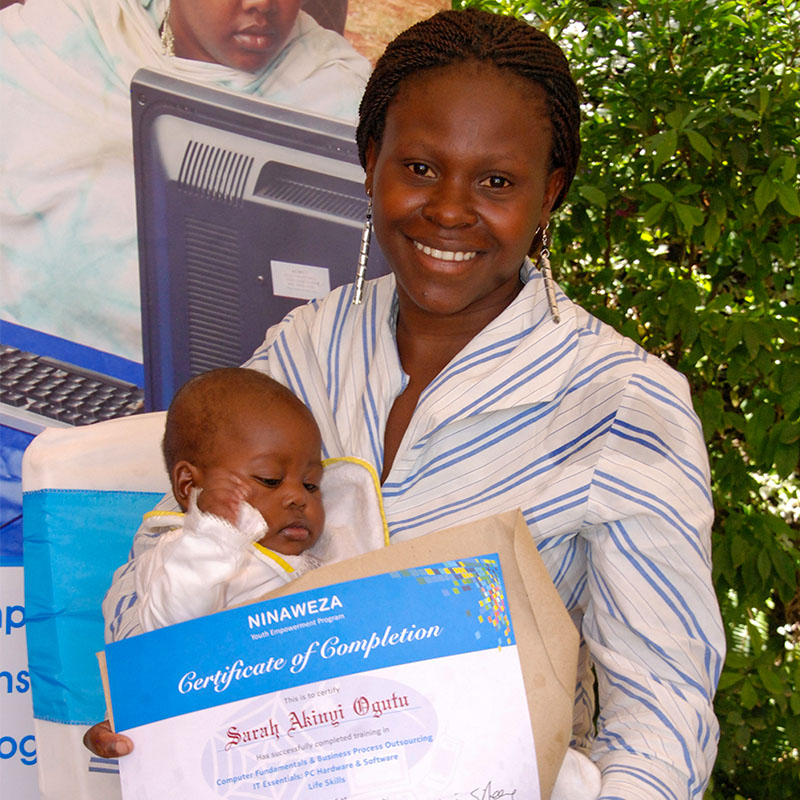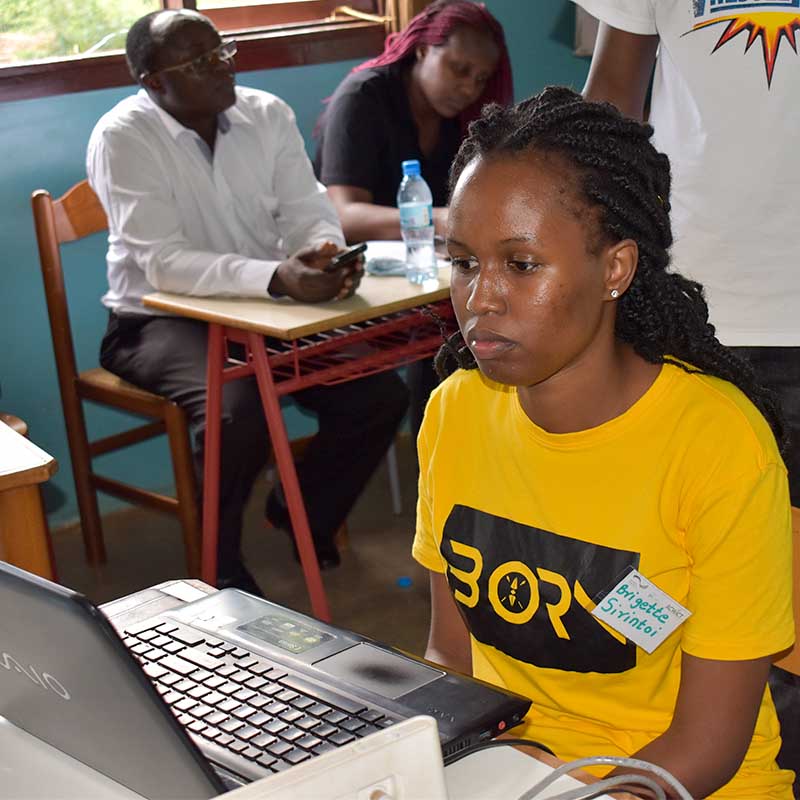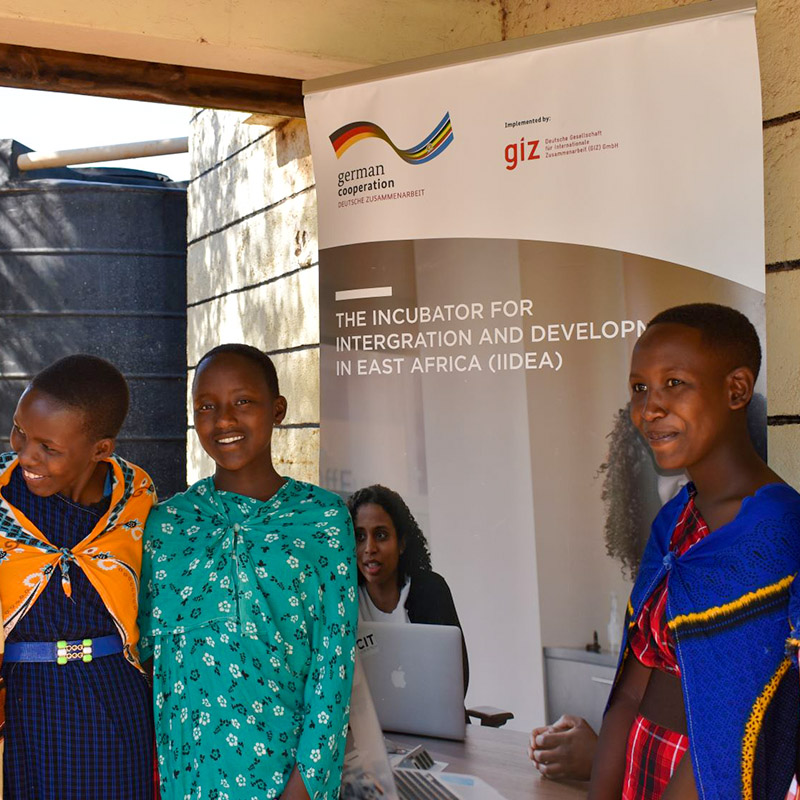Overview
Young people in Kenya today live in complex and challenging times. Faced with a myriad of difficulties especially in the initial workforce entry. It is estimated that 750,000 young people enter the workplace annually, yet only 15% get absorbed into formal employment. Consequently, the rest of the youth cohorts (85%) take up informal work and/or face the brunt of poverty. High unemployment rates are attributed to the low absorptive capacity of the economy, weak implementation, and coordination of youth-targeted employment interventions; lack of skills relevant to the workplace by the young people; lack of information on available job opportunities; lack of networks and connections among youth; lack of experience and credentials that address employers' risk in making hiring commitments and lack of available jobs suited to entry-level skills. Access to education and productive employment or income-generating opportunities is the surest way to improve one's economic and social standing. The week of code initiative aims to mitigate the above challenges by encouraging young people, especially at the university level to develop Entrepreneurial minds. Moreover, create opportunities for themselves as well as other members of society through the development of e-solutions. The week of code will prepare young people to appreciate and take the initiative to create e-solutions through the coding skills gained. Beneficiaries will also be taken through the fundamentals of Digital entrepreneurship to enable them to become 'Technoprenuers'. ACWICT has over the years implemented the week of code initiative in partnership with Universities (JKUAT, Kenyatta University, ZETECH, Nazarene) and Highschools (Starehe Girls and Nembu Girls)reaching over 2000 youth at different levels of their education.
Program Aims
The objective of the Digital skills and computer science training program's week of code initiative was to introduce and sensitize coding as a tool for sustainable socio-economic development. This initiative looked to achieve its goal by reaching out to young women and men at their various levels of education to sensitize and upskill them on basic coding, Entrepreneurial, and employability skills. Furthermore, the skills earned will help them leverage aspects of technology to not only enable the day to day user with more than predictable consumer hobbies but also aspire to create content that can be used globally Rationale behind the Intervention.

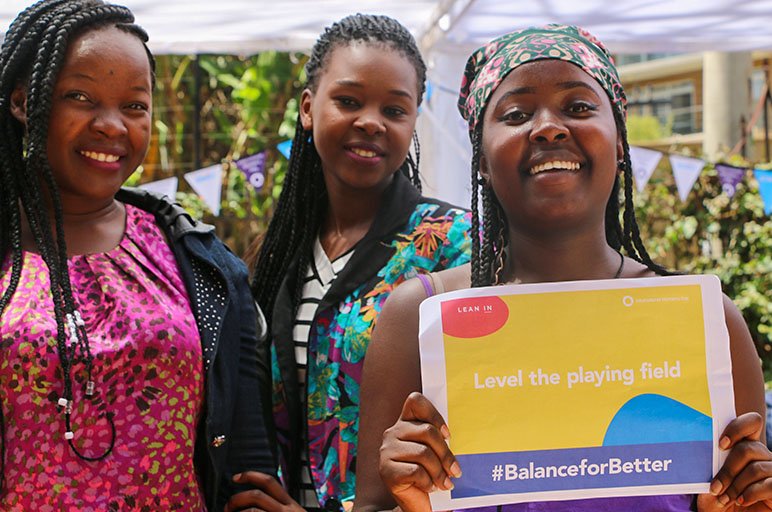
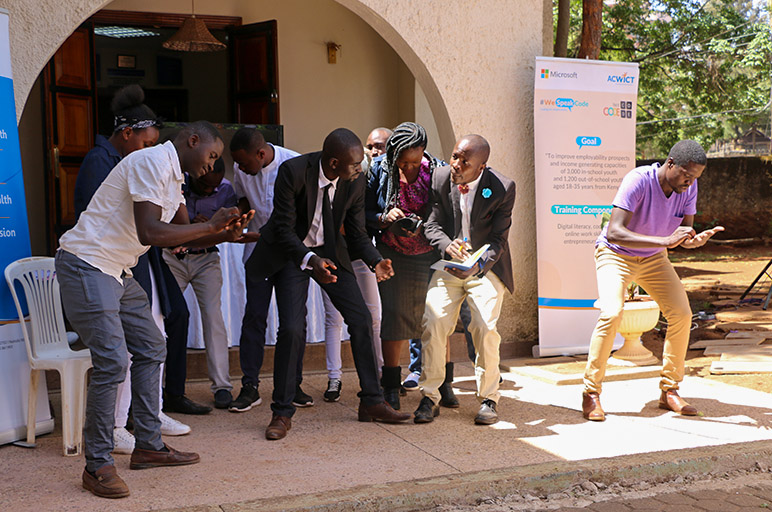
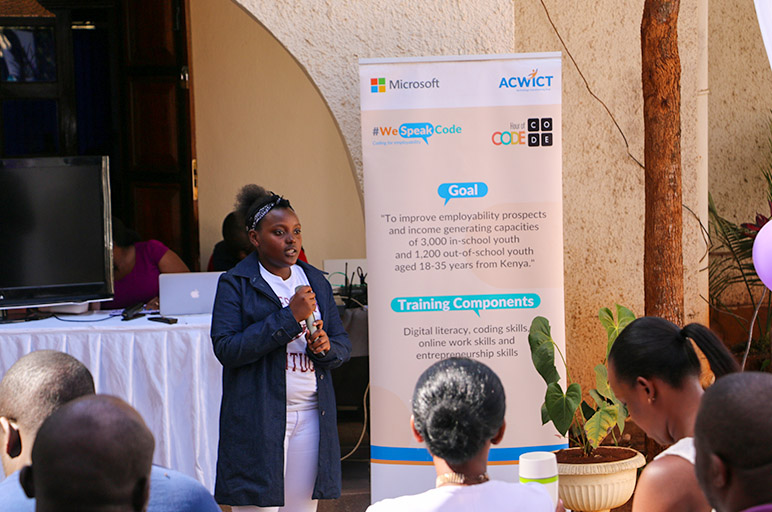
Our Approach
We developed different curriculums for different cohorts of the youth who participated in the program. Furthermore, it equipped young people with employability skills relevant to their levels of education and job market's needs. The curriculum was flexible and covered three areas; Digital Literacy, Entrepreneurship, Life Skills (Life skills at workplace, day to day life skills, and reproductive health), and 19 trades from VTI's. Once trained, the young people were to be supported in securing jobs/internships/apprenticeship opportunities. Over 80% of the young people trained were to get placement opportunities. Those seeking entrepreneurship paths are linked to sources of start-up capital. Through the years, the organization has developed networks and strategic partnerships and alliances with international development partners, national and county governments, national technology companies, public/ private universities in Kenya, TVETs, NGOs, and community-based organizations. We have also established an employer partner's network that supports the job placement component of our employability programs.
Key skill based areas tackled in the program
On the coding component, the program upskilled young men and women on some of the most commonly used programming languages (HTML5, CSS3, and JavaScript) in developing mobile and application-based software. The approach purely focussed on hands-on skills leveraging up-to-date software like Visual studio, Zamp, Wamp, Dreamweaver, and Notepad+++. Up to date our week of code program has been able to reach out to over 7000 beneficiaries through our youth employability programs with our ongoing partnerships with corporations such as Microsoft, Rockefeller, Facebook helping us achieve our goal of increasing tech competencies as part of the STEM initiative

Our impact by the numbers
How our work brought about success
Cyndrine Amadi Anangwe Testimonial

Shalyne Wendy Anyango Testimonial


